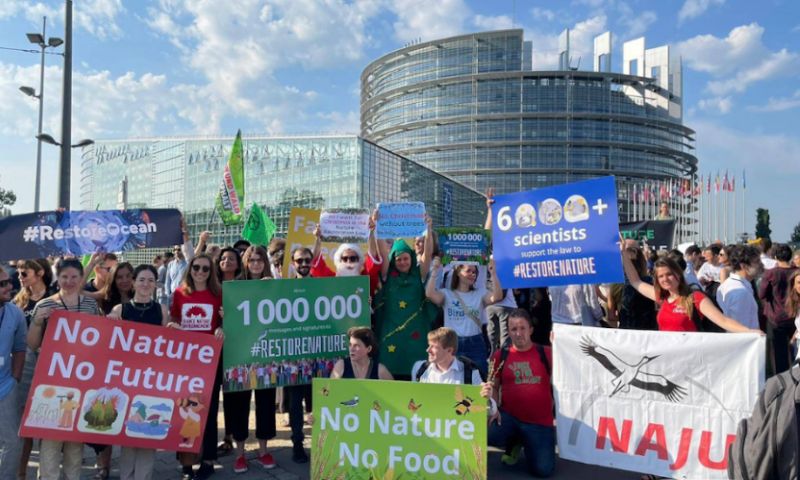BRUSSELS: Despite widespread farmers’ protests and political opposition, the European Parliament has passed a landmark law aimed at restoring nature across the European Union, marking a significant step forward in the bloc’s environmental agenda.
The contentious vote comes after weeks of demonstrations by farmers across Europe, culminating in a violent protest outside the European Union’s headquarters in Brussels on Monday. Farmers have voiced their grievances against what they perceive as burdensome EU green policies, citing concerns over excessive bureaucracy and regulatory constraints.
In a tight decision, EU lawmakers approved the nature law with 329 votes in favor, 275 against, and 24 abstentions. The passage of the law was achieved despite a last-minute decision by the European People’s Party lawmaker group to oppose it, citing fears of increased red tape for farmers.
European Parliament Hailed
The nature law, hailed as one of the EU’s most significant environmental legislations, mandates member states to implement measures aimed at restoring nature on at least one-fifth of their land and sea by 2030. EU Environment Commissioner Virginijus Sinkevicius underscored the importance of the policy as a concrete step toward preserving biodiversity, ecosystems, and essential natural resources, particularly for the agricultural sector.
The legislation seeks to address the decline of Europe’s natural habitats, with 81% currently classified as being in poor health. Specific targets outlined in the law include the restoration of peatlands to enhance their capacity for absorbing CO2 emissions.
Despite facing staunch political opposition since its proposal by the European Commission in 2022, the nature law has persevered, albeit with amendments to address concerns raised by center-right lawmakers. These modifications include adjustments to weaken certain provisions, such as the introduction of more trees and biodiverse features to farmland.
The policy now awaits final approval from EU member states before it can be enacted. While this approval is typically procedural, recent political maneuvers, including the withdrawal of proposed pesticide reduction laws and delays in land set-asides for nature, highlight the ongoing tensions between environmental objectives and agricultural interests within the EU.























